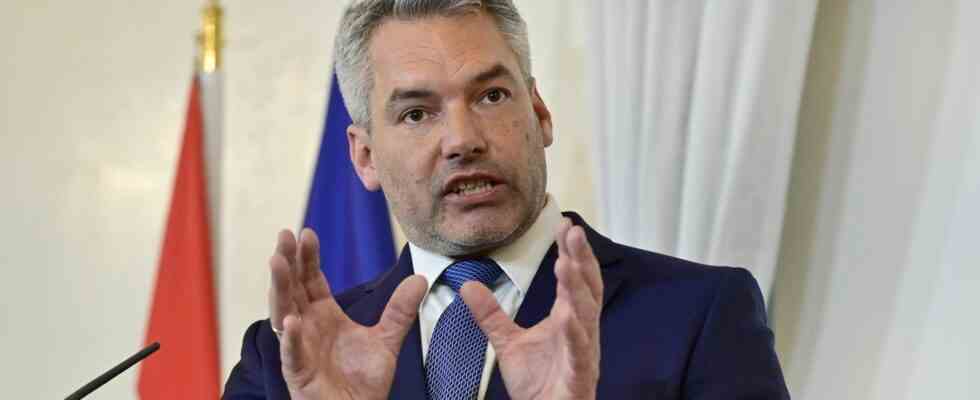The commission of experts set up by the federal government has hardly presented its proposals for a gas price brake in Germany when it is criticized by the EU. What plans are other EU countries pursuing to relieve consumers?
The German plans for a gas price brake are met with skepticism in neighboring Austria. He was “in principle” in favor of such a mechanism, Austrian Chancellor Karl Nehammer told the “Welt” on Tuesday. “But this gas price brake can only be organized at European level. Going it alone at national level is out of the question,” also because it could distort competitiveness in the European internal market.
Nehammer sees the EU Commission as having a duty: “We’ve been waiting for proposals from Brussels for months,” he complained. “The EU must jointly shoulder a certain price for gas used to generate electricity and pass this on to consumers,” Nehammer demanded. “This is the only way to finally decouple the high gas prices from the electricity prices.”
Gas prices drive all EU countries
Market prices would have to be paid for the gas, “otherwise the EU would not receive any gas,” Nehammer admitted. “The difference between the market purchase price and the price for the consumer would have to be borne by the public sector.”
On Monday, the commission of experts set up by the federal government presented its proposals for a gas price brake in Germany. First of all, the state should take over the gas advance payments for December in full. A basic gas contingent should then be priced as of March.
Scholz counters criticism of the gas price brake
Chancellor Olaf Scholz (SPD) has rejected international criticism of the German course in the energy crisis. Scholz said on Wednesday after the German-Spanish government consultations in La Coruña in response to a question that Germany had made “very, very far-reaching” decisions to ensure the security of energy supply in Germany at the same time in order to ensure the security of energy supply for to ensure all of Europe.
The Chancellor mentioned the construction of own LNG terminals in Germany. These capacities would also enable Germany to supply gas to many neighbors such as the Czech Republic, Slovakia or Austria via the German grid. This infrastructure could later also be used for hydrogen.
But how do the other EU countries intend to reduce gas prices for their consumers? An overview.
Other sources: DPA, “Business Insiders”, “Sueddeutsche.de”, “Le Monde.fr”, “Tagesschau.de”.

